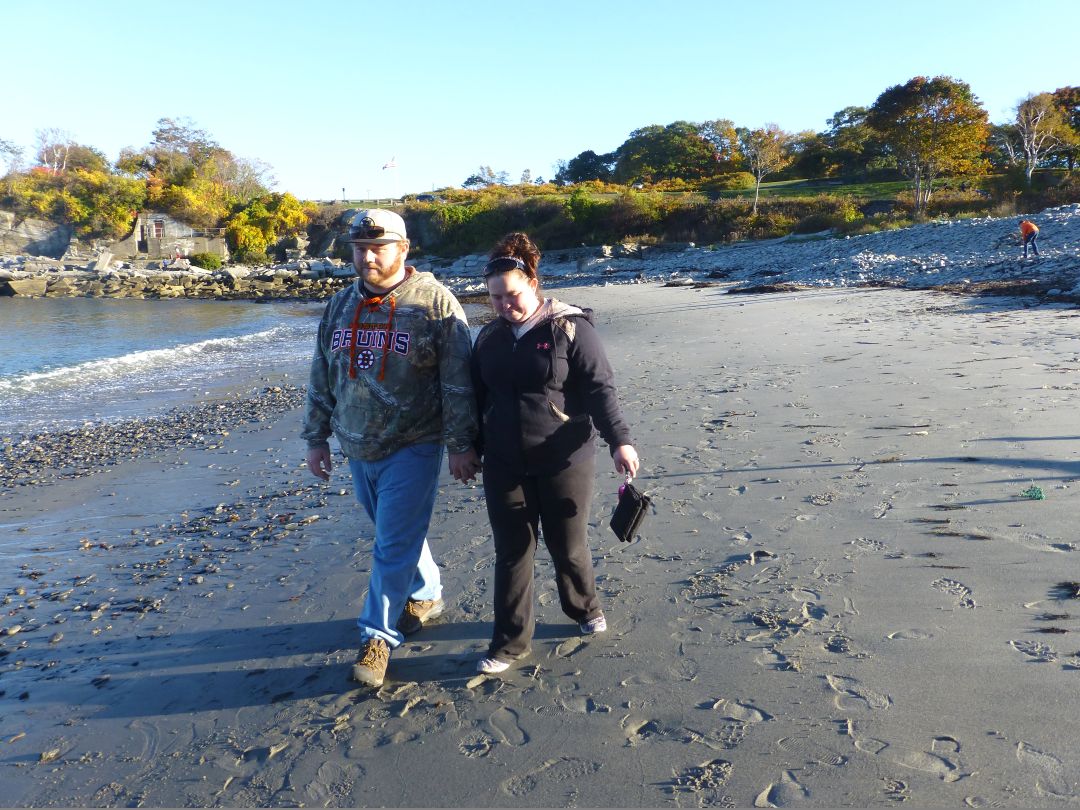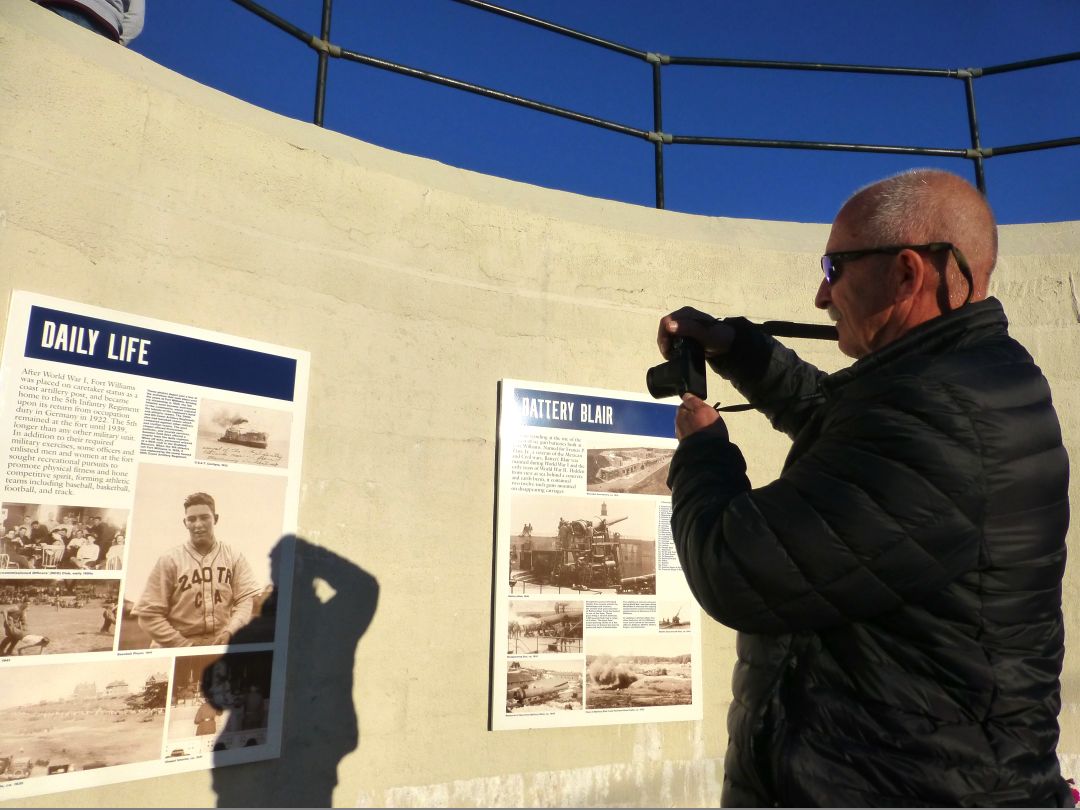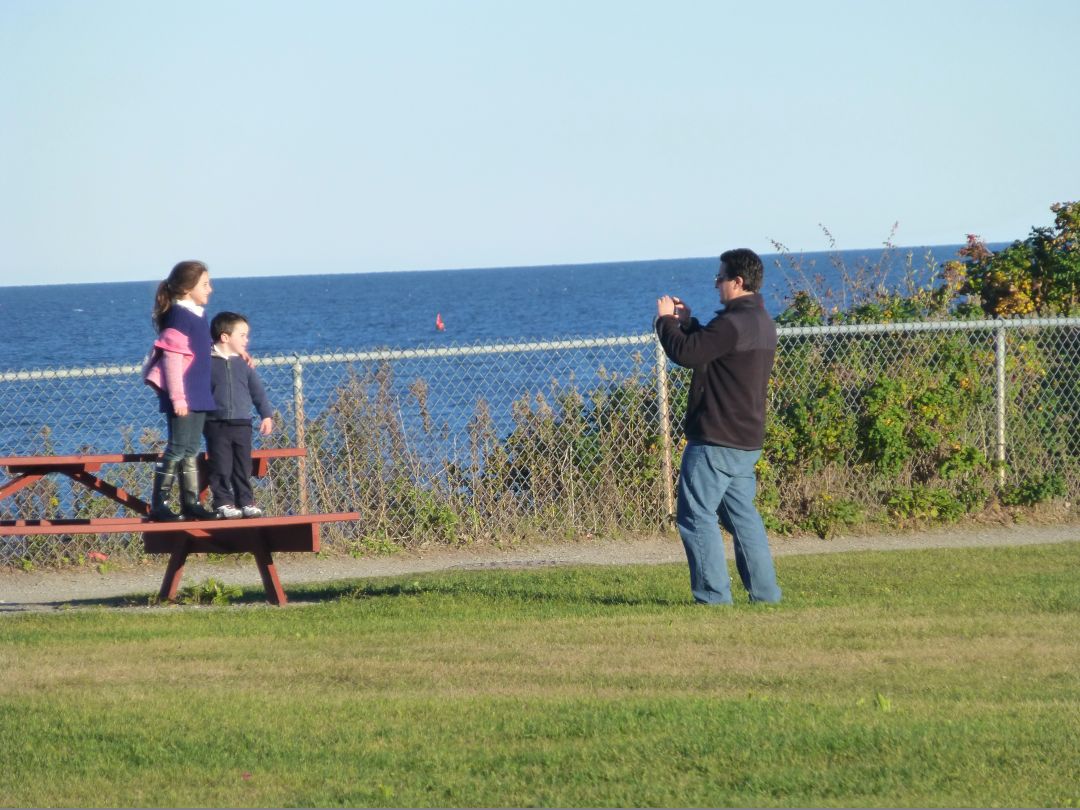For the third time in a decade, Cape Elizabeth councilors could take another look at whether to charge parking fees in Fort Williams Park as one way to generate revenue.
Cape Elizabeth purchased the park from the federal government in 1964 and has never charged visitors to visit.
The idea resurfaced last week when Jim Walsh, the Town Council liaison for the Fort Williams Advisory Commission, requested that councilors revisit the idea of installing a pay-and-display system at Fort Williams as a way to raise revenue for costly park projects.
Town Manager Mike McGovern told the Current Monday that the council would probably discuss Walsh’s proposal this winter as part of its 2016 goal-setting process.
Cape Elizabeth voters turned down similar parking fee proposals during two separate town-wide referendums in 2006 and 2010. In the past, some residents worried that charging fees would lower attendance at the park’s museum or gift shop – or the park in general – and suggested alternative ways to gain revenue, including selling food.
Most park users, primarily from out of state, told the Current that they wouldn’t mind paying a parking fee if it were ever required. A few thought a fee might discourage visitors to the park, which is a major tourism draw for Cape.
Shaun Wood, a South Carolina resident who was on vacation with his family, said he likes that parking is free, but being charged a fee in the future wouldn’t discourage him from returning.
“If it’s a small amount, I am sure people would pay it,” Wood said. “It’s so pretty here.”
A couple from New Hampshire, Ryan LaBelle and Kourtne Flanders, who were sightseeing at Fort Williams, agreed that they’re willing to pay parking fees to help with upkeep of the park.
LaBelle said a weeklong parking pass for Acadia National Park in Mount Desert Island costs $25 from May through October, and that a comparable fee in Cape Elizabeth would be well worth it.
Pointing to the park’s historic Goddard Mansion while walking near the Ship Cove parking lot, LaBelle said, “It would be cool to see this rehabbed.”
California resident Roy Cameron, who was taking photos of the park’s landscape last week, said charging a parking fee would be “ideal,” especially if the proceeds go toward park maintenance and preserving its history. He doesn’t think charging a fee would prevent out-of-state visitors from traveling to the park to experience its beauty.
Bath resident Michael Zaretsky said he would understand the town’s need to regulate parking if it decided to do so in the future.
“I think it would be fair to pay,” he said. “I wouldn’t mind paying (a fee) if it was reasonable.”
Under the 2006 proposal, Cape Elizabeth residents would have been able to park for free, while other park users would have been required to pay a daily parking fee of $5, or $25 for a seasonal pass.
The 2010 plan would have required residents to pay $10 annually, and out-of-town visitors $20 a year. Visitors without an annual pass would have paid $5 for parking during each visit at a pay-and-display kiosk.
In 2012, the town adopted a Fort Williams Park Master Plan, which includes recommendations for future maintenance and improvements at the park. In a town-wide survey earlier this fall, of which 800 people responded, 52 percent said they’d like to see the historic Goddard Mansion stabilized.
Walsh, who is in his second term on the council but is not seeking re-election this November, said he thinks it’s an appropriate time for the council to discuss how it will generate revenue going forward, since residents in recent years have requested several improvements at the park. Those include a public restroom or amphitheater, which could cost as much as $500,000.
“There are lots of infrastructure-related expenses that are being talked about,” he said, and “I don’t think they should be paid for by the citizens of Cape Elizabeth.”
Councilors, during their Oct. 14 meeting, agreed that it’s a good time to revisit the parking fee concept.
Councilor Patty Grennon said that “it would make sense” to talk about a pay-and-display parking program for generating revenue for the town, since there is “three quarters of a million to a million dollars in improvements that people possibly want (at the park).”
Councilor Jessica Sullivan called the possible implementation of a pay-and-display system “forward-thinking,” due to the number of park visitors and capital improvement projects being considered.
“The time has come to take a much closer look at this,” Sullivan said.
According to the Cape Elizabeth website, Fort Williams Park – which offers stunning views of Casco Bay and is home to the iconic Portland Head Light – draws nearly a million visitors from around the world every year.
Under the proposal, Cape Elizabeth residents with recycling center car decals would not be charged for parking, Walsh said. Other park users would need to purchase a parking ticket from a pay-and-display kiosk by inserting cash or a credit card, and then place that ticket on their dashboard or other visible location in their vehicle.
Councilors said they want Cape Elizabeth residents to understand that, if such a system is implemented, it would only be targeted toward out-of-town visitors.
Councilor Caitlin Jordan said the town should look “more broadly” at generating revenue in the park, including a plan to charge parking fees.
According to Walsh, 340 parking spaces are available at Fort Williams Park, including some overflow parking near the old fire station. Walsh said charging parking fees could generate funds for future capital improvement projects, such as the construction of a Welcome Center, an amphitheater or sidewalks, and would enable the town-owned park to operate self-sufficiently, without depending on taxpayer funds.
“The fact of the matter is, we have an asset that I believe we need to care for and invest in properly going forward,” Walsh told councilors at the Oct. 14 meeting.
McGovern told the Current that, until the council discusses the parking fee idea, he could not speculate on how the additional revenues from a pay-and-display system might be spent.
While the park’s operating expenses are now paid by local tax dollars, the park’s capital budget is supported by revenues generated by donations, coin-operated binoculars, rentals of picnic shelters, museum shop sales, concessions, and bus and trolley fees, among other site fees.
According to a Fort Williams Park revenue spreadsheet that McGovern provided the Current, the total park income for fiscal year 2015 is $182,814. When residents voted against the parking fees five years ago, the total revenue being generated at the park was about $27,000. The significant increase in revenue within the last five years is largely a result of a town decision to rent space in a building on Officer’s Row, or Building No. 324; offering concessions; charging buses a daily parking fee of $40, trolleys an annual parking fee of $1,000 and large groups a fee for hosting events at the park, McGovern said.
An alternative to charging a parking fee, said Walsh, would be to increase fees such as picnic shelter rentals.
Cape Elizabeth resident Doug McFadd, who was watching a soccer game at the park’s athletic field last week, said that he would not support a parking fee because it might discourage out-of-state visitors from coming to the park.
“I’ve always appreciated (Fort Williams) as being a resource that is open to all,” he said.
Meanwhile, another Cape Elizabeth resident, Macauley Cliffe, said she supports the idea, especially if it means the revenue being generated goes back into park upkeep.
“If the park is struggling, and the town needs help to maintain the park, then I am for it,” Cliffe said.
Walsh said implementing a pay-and-display parking system, similar to the one in nearby Portland, is just one of several possible ways the town could increase its revenue without relying on taxpayer dollars.
“I am not the expert,” Walsh said. “I am just a town councilor who feels that we should dust this revenue opportunity off – and take a look at it.”
 New Hampshire residents Ryan LaBelle and Kourtne Flanders take an afternoon stroll on the beach in Ship Cove at Fort Williams Park last week. They’re willing to pay parking fees to help with upkeep of the park.Staff photo by Kayla J. Collins
New Hampshire residents Ryan LaBelle and Kourtne Flanders take an afternoon stroll on the beach in Ship Cove at Fort Williams Park last week. They’re willing to pay parking fees to help with upkeep of the park.Staff photo by Kayla J. Collins Jim Walsh
Jim Walsh California resident Roy Cameron, who said he would support a parking fee at Fort Williams, photographs interpretive signs in the lower section of Battery Blair.Staff photos by Kayla J. Collins
California resident Roy Cameron, who said he would support a parking fee at Fort Williams, photographs interpretive signs in the lower section of Battery Blair.Staff photos by Kayla J. Collins Bath resident Michael Zaretsky takes photos of his children during a recent visit to Fort Williams Park. Zaretsky said he wouldn’t mind paying a parking fee.
Bath resident Michael Zaretsky takes photos of his children during a recent visit to Fort Williams Park. Zaretsky said he wouldn’t mind paying a parking fee. Cape Elizabeth residents, front to back, Doug McFadd, Macauley Cliffe and Dylan McFadd, watch a soccer game at the park’s athletic field last week.
Cape Elizabeth residents, front to back, Doug McFadd, Macauley Cliffe and Dylan McFadd, watch a soccer game at the park’s athletic field last week.
Comments are no longer available on this story